Hamlet (1948)
“There are more things in heaven and earth, Horatio, than are dreamt of in your philosophy.”
|
Synopsis: |
|
Genres, Themes, Actors, and Directors:
Review:
He concedes, “Hamlet isn’t without merits, of course — not with Olivier himself in the lead.” But he argues that “Olivier’s direction isn’t imaginative, he pretty much ignores the other actors, his visuals have little thematic relevance (it isn’t enough just to move the camera), and much of the production looks no better than a kinescope of some fifties American television drama.” Ouch! I disagree with each of these points. Olivier’s direction and visuals (aided by DP Desmond Dickinson) are highly atmospheric and innovative throughout: … and the supporting actors all do a fine job: Numerous scenes are quite haunting, including Hamlet seeing his father’s ghost: … and the discovery of the jester Yorick’s skull: (Complaints have been made over Olivier casting a woman 11 years younger than him as his mother in the film, but this age difference isn’t all that noticeable; we simply believe Queen Gertrude was a young-ish mother, and Hamlet may have aged a bit prematurely due to stress.) Peary further asserts that “until Hamlet’s swordfight with Laertes: … the picture drags,” and he notes that while “Olivier deleted almost two hours from the play,” “it still seems too long.” I’ll agree the film feels long at points, but it’s hard to determine how Olivier could have made too many more cuts given how much flack he already received over removing the supporting characters of Rosencrantz, Guildenstern, and Fortinbras, as well as a couple of key soliloquies. We see just enough here to get the strong gist of the tragic storyline, and are treated to the cast’s expressive handling of the dialogue throughout. Finally, Peary argues this film “doesn’t equal either [Olivier’s] earlier Henry V or his later Richard III.” I haven’t seen Richard III recently enough to comment, but I prefer this over Henry V, which is visually innovative but lack’s Hamlet’s narrative depth and inherent interest. This adaptation remains well worth a look. Notable Performances, Qualities, and Moments: Must See? Categories
Links: |
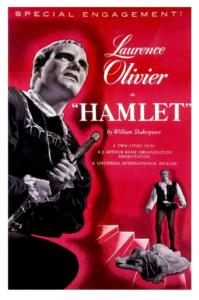
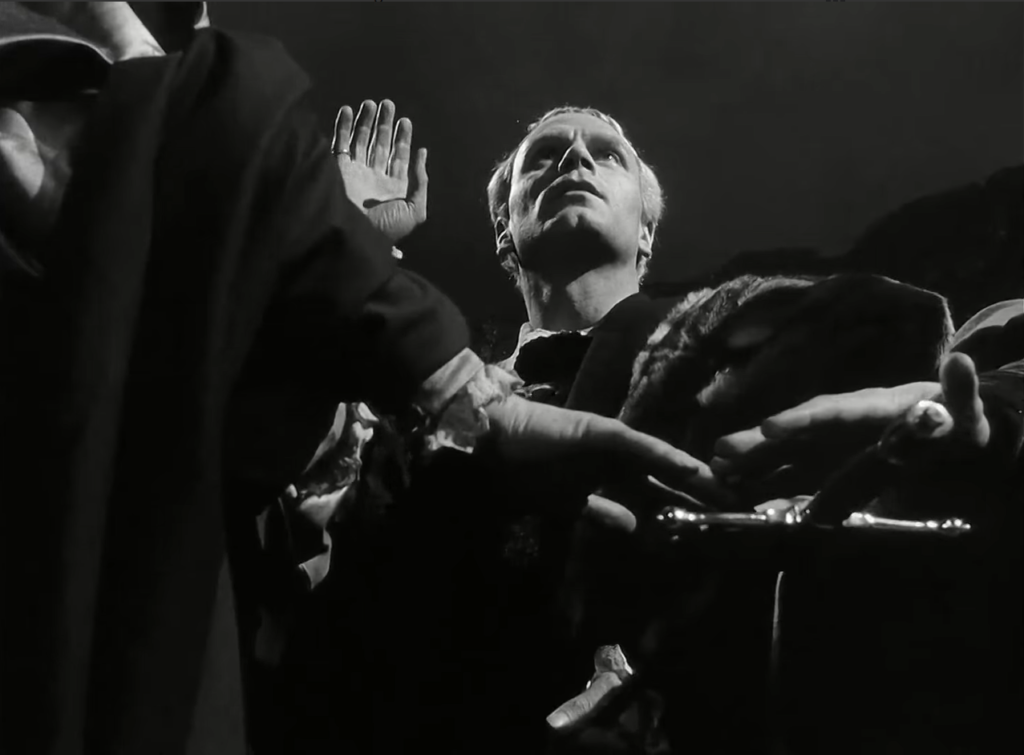
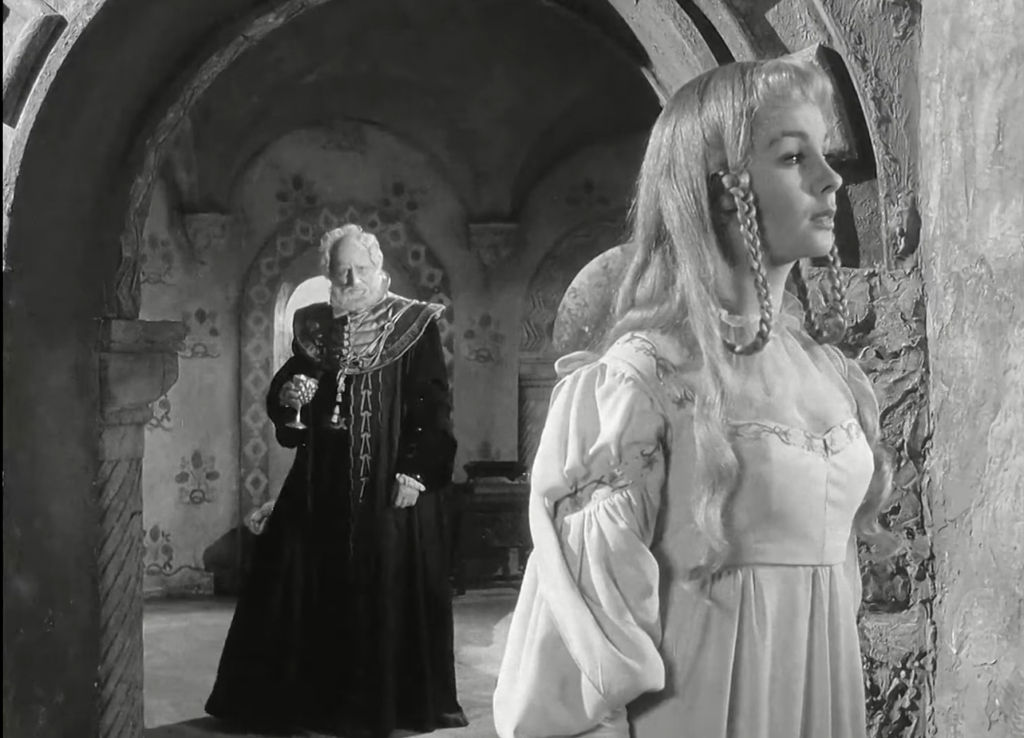
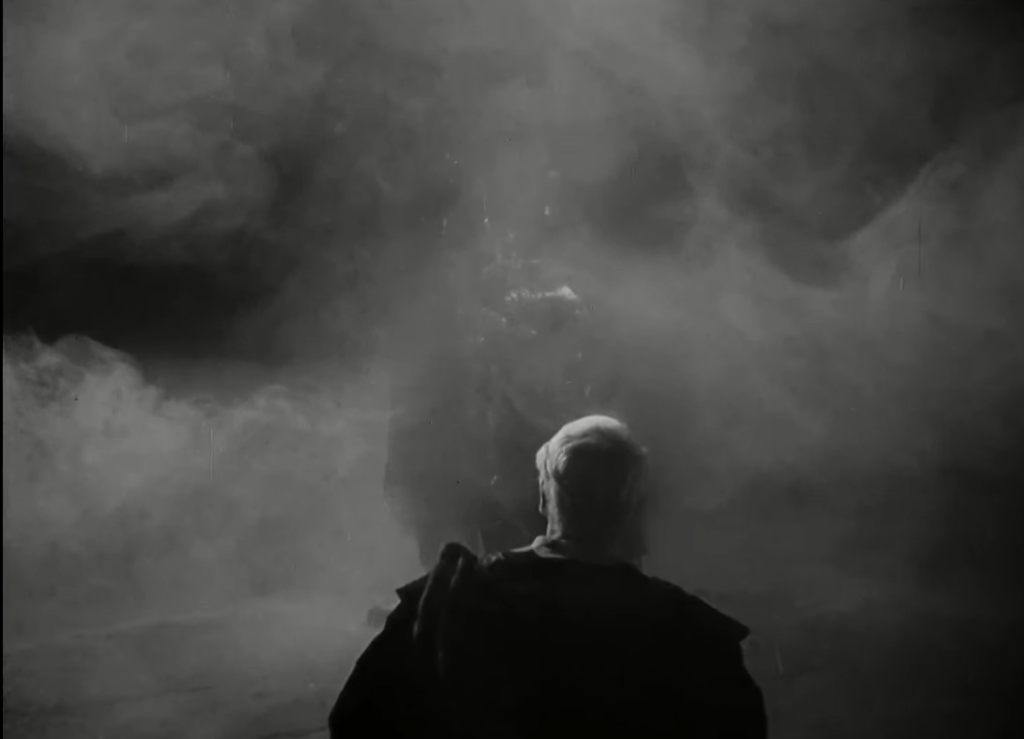
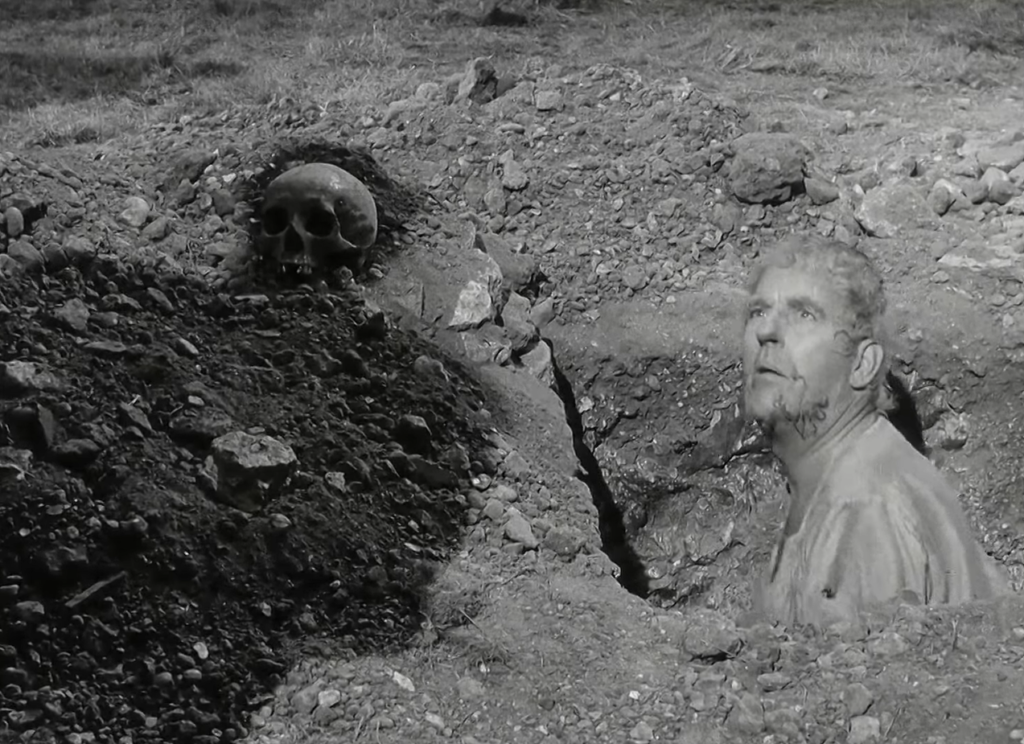
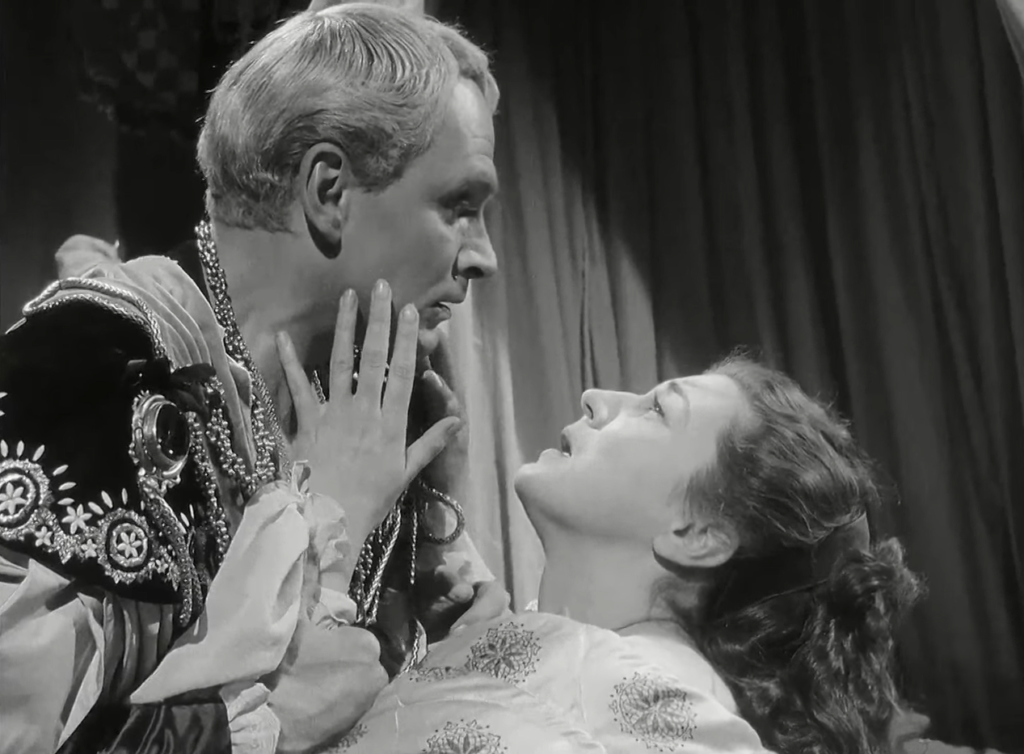
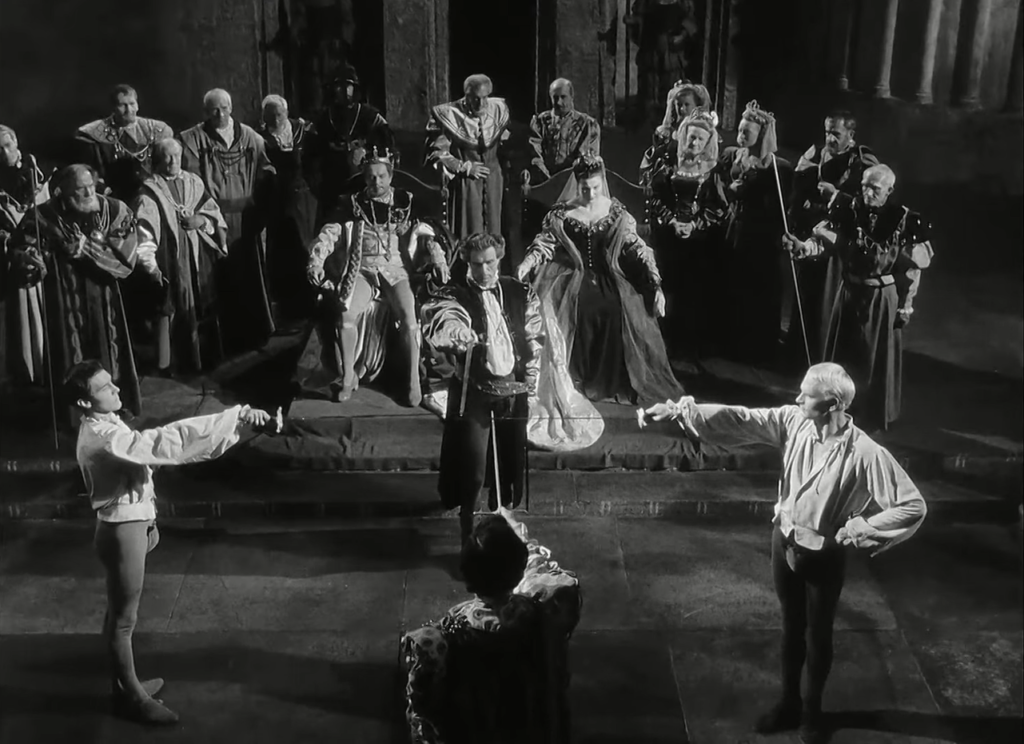
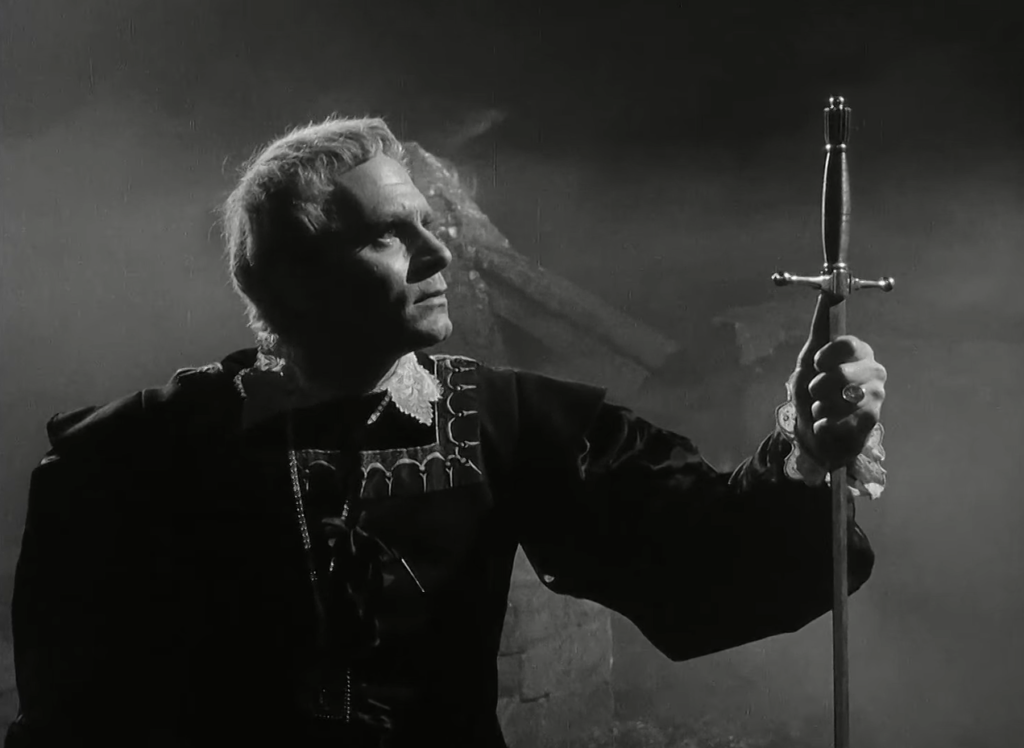
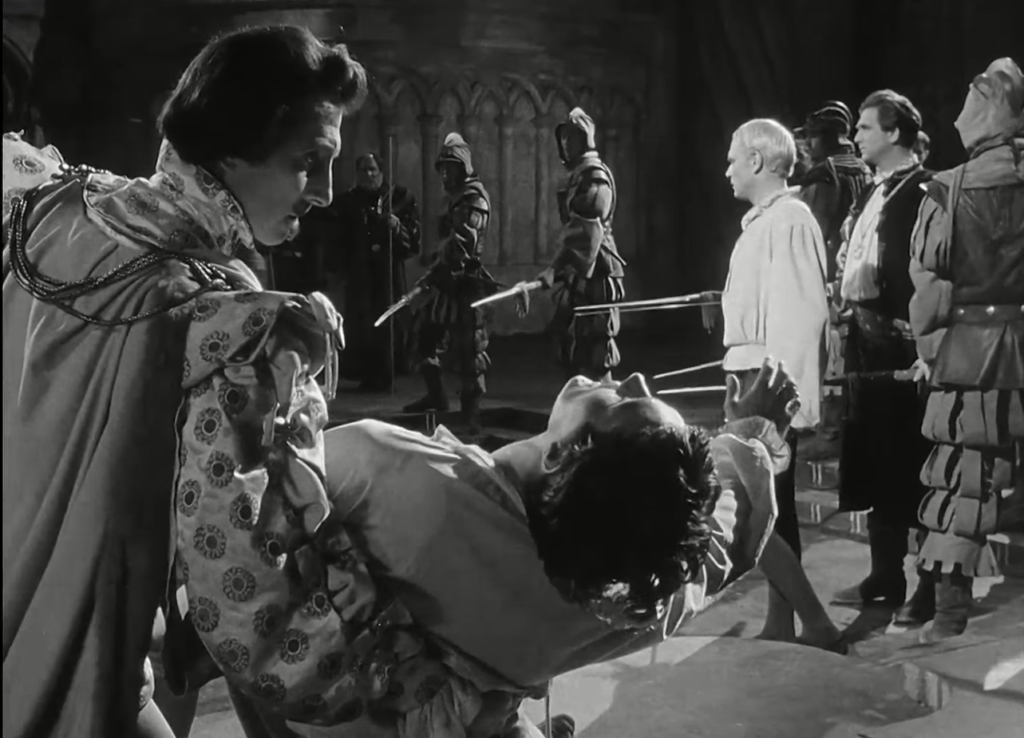
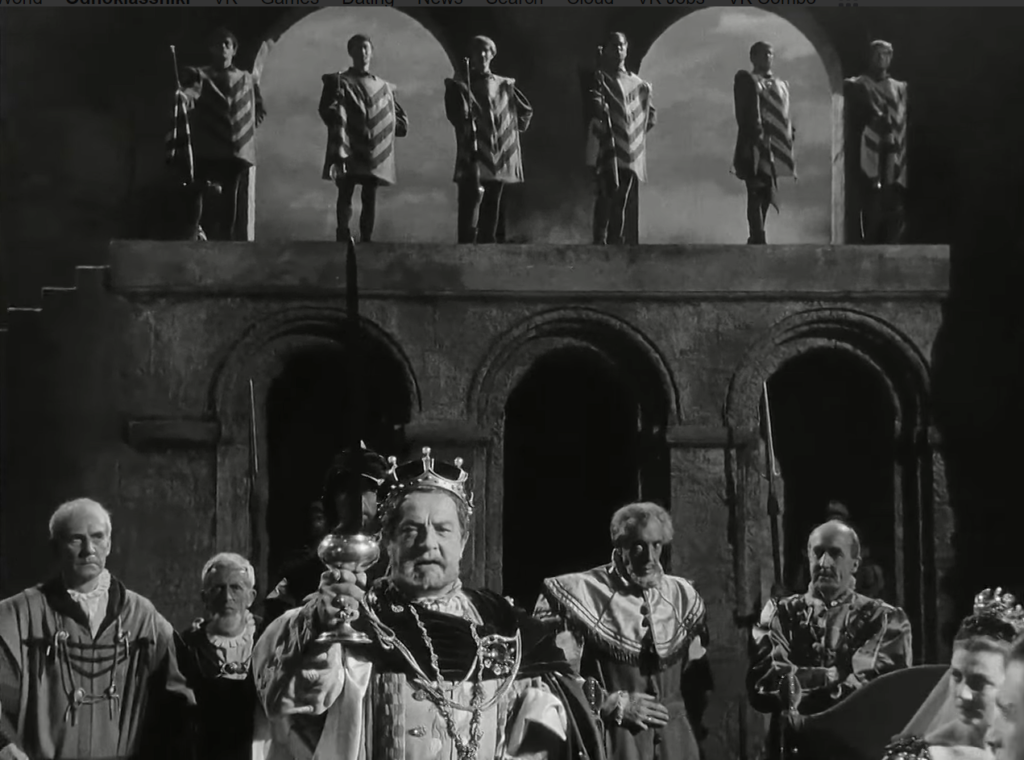
3 thoughts on “Hamlet (1948)”
Not must-see. Seems I’m more in agreement with Peary on this one.
In 1948, ‘Hamlet’ not only won Oscars for Best Picture and Best Actor but it won a significant amount of awards elsewhere as well. I wonder what the response would be if this same film were released today – as fresh. I suspect it would not be as widely embraced.
I suspect a lot of that has to do with Olivier’s dominating, self-indulgent performance. It really drags this film d-o-w-n and makes it a tiresome experience. Yes, ‘Hamlet’ is a gloomy play – but, as an actor, Olivier does little to act against that (or vary his ‘colors’). Instead, he wallows in it. (To be generous, the best I can offer is that his performance can be seen as spotty – and a smattering of his scenes are not all that objectionable. Still, they’re in the minority.)
He does better as a director. His pacing is often a problem – he rarely encourages swift verbal exchanges (when more of those would be more effective) but he’s often good at creating (with his DP Dickerson) visually arresting images. And Olivier seems to have nurtured some generally fine performances out of his supporting cast – particularly Sidney (Claudius), Herlie (Gertrude), Aylmer (Polonius), Morgan (Laertes), Holloway (Gravedigger), even Cushing (as – to me – the marginally gay Osric).
Simmons doesn’t fare as well as Ophelia. Hamlet and Ophelia are the toughest roles in the play and both actors fall into various traps. But significantly, Olivier – referred to in the play as a “noble youth” – is 40 years old here. That’s simply too old and he looks and acts it. (I had to laugh when Olivier actually put his knuckle to his mouth to indicate despair – and when he chose to give his ‘To be or not to be…’ speech mostly while lounging!)
Tempo-wise, ‘Hamlet’ should play more like a suspenseful murder mystery and more pointedly like a revenge drama. This ‘Hamlet’ too largely plays like a dirge.
It’s interesting how polarizing this film is.
I’m not personally a big Shakespeare fan; I admire his work greatly (even took a course specifically on him to try to dig deeper in college), but I don’t tend to turn to it willingly since it takes some effort to get immersed in his language and worlds. That’s a big reason why I’m only now finally reviewing most of the Shakespeare titles in GFTFF.
So, with that said — I can appreciate Peary’s overall sentiment of preferring Treasure… over this for a rewatch (sure!). Academy Awards are dumb and biased anyway, right?
But I didn’t find massive problems with this adaptation, or Olivier’s performance. I guess that really is a matter of personal choice and interpretation, which a super-famous play will inevitably engender. I might feel differently if I had read or studied the play more recently (and/or seen one of the other adaptations to compare it to).
The thing about Shakespeare in film: there are so many versions of so many of his plays (commercial films as well as filmed staged productions) that – unlike just about everything else in Peary’s books – it becomes less necessary to think of the productions he points out as definitive (regardless of whether he gives one a thumbs up or a thumbs down).
Not every version of what was filmed of Shakespeare’s work is must-see – fortunately there is often a good version of a particular title to suit a particular taste.
Ultimately, this version of ‘Hamlet’ doesn’t work for me because it was always threatening to put me to sleep. I’ve seen better versions of ‘Hamlet’. I realize that part of the film’s calling card was that Olivier played the lead. But I think he should have stuck to just playing the father’s ghost (which he supplied the voice for).